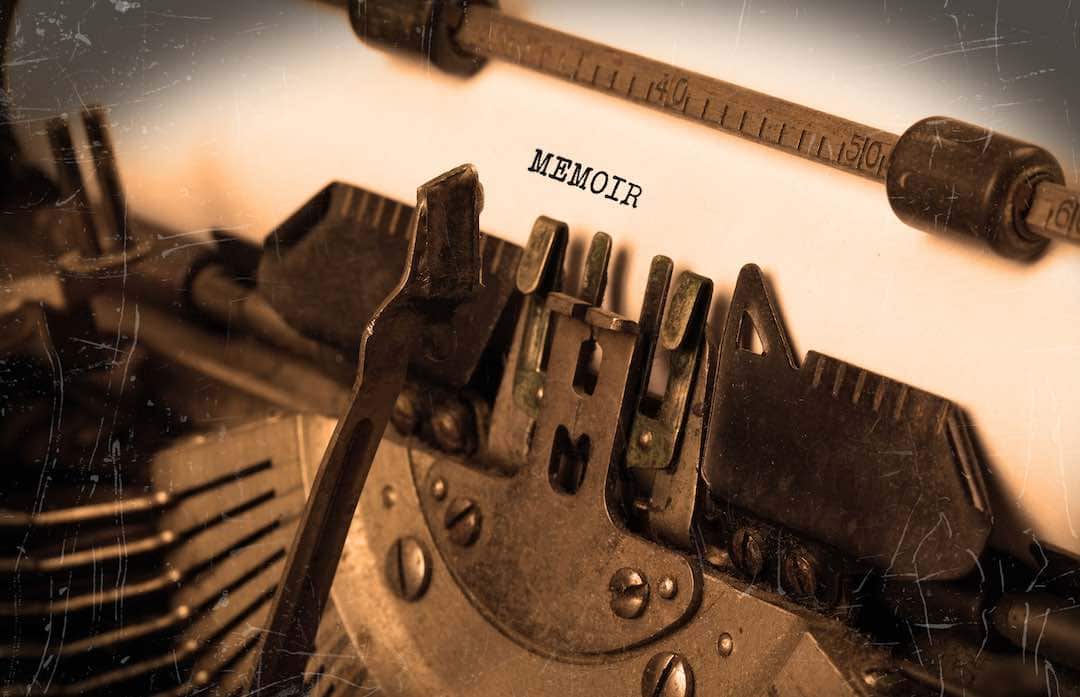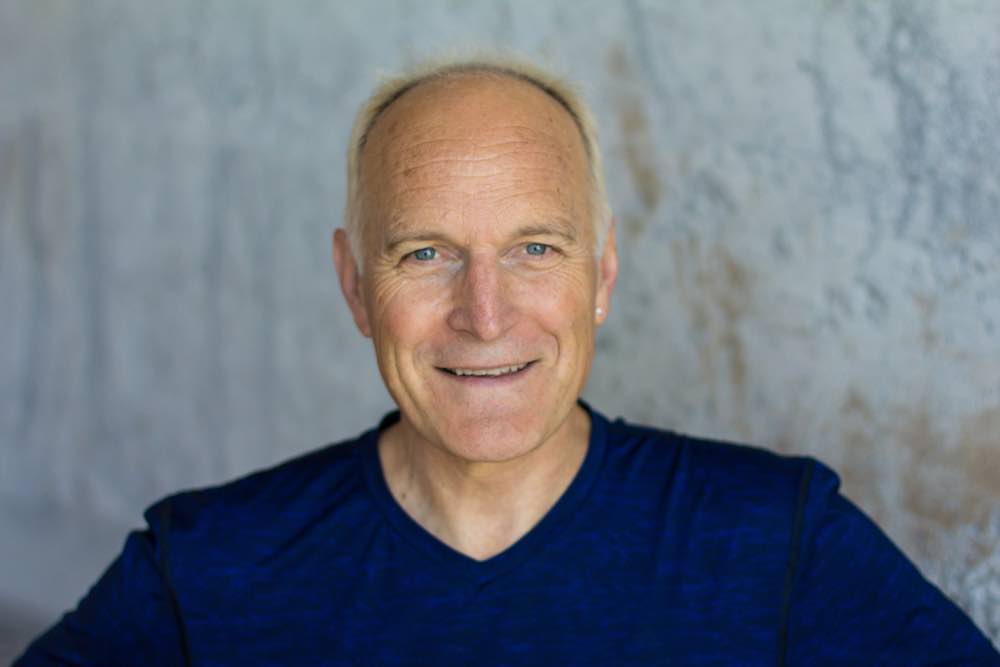“We write to taste life twice, in the moment and in retrospect.”
— Anais Nin
You’ve spent five or six-plus decades on the planet, and you’ve got the crow’s feet, scars, and stories to prove it. And — grace willing — you’ve got gas in the tank for many years ahead. That said, what moments in your life are calling you to taste them twice?
Memoir in the large sense is a genre of writing that provides us the framework to step back, view our lives and the lessons learned along the way with the benefit of distance and — with any luck or intention — absent from any emotional charge. These are the events that have shaped our lives, that have granted us wisdom, knowledge, compassion. Far from a “look at me dancing” account, memoir allows us to share the moments of being human, to explore an individual’s unique life experiences, how they played the hands they were dealt, and what they learned or how they transformed as a result.
Why Bother?
Reasons for writing your memoir can vary from leaving a written legacy for your family to putting into perspective a life event that you now view with more objectivity. Some consider writing their memoir as a cathartic experience — it’s no mistake that counselors and therapists often encourage their clients to keep journals. Putting ideas and experiences into print requires thoughtfulness, sensitivity, circumspection, an honest appraisal. As author Abigail Thomas puts it — of “how you got from there to here”. Ultimately, you are writing for yourself and the satisfaction and insights gained from the process.
What Memoir Is Not
Memoir is not autobiography, which is usually reserved for those who have achieved fame in one form or another — Presidents, Prime Ministers, Actors, Musicians, Authors, CEO’s, Nobel Prize winners…those who have made a lasting impact on the world. An autobiography is usually a chronological accounting of one’s life. It is replete with the details and nuances that are compelling because we want to know everything about the person.
For the rest of us, writing and reading about what hospital we were born in and when, when we got our first haircut and who our first-grade teacher was would compete with reading a phone book. Not that interesting. And — to be brutally honest — not that important. Maybe not even to us. It’s not necessarily the events that are important, but how we view and transform through them that make for a compelling memoir.
Memoir is not about getting even or revenge or using your truth or recall as a weapon. Yes, we all have stories of how we’ve been slighted and hurt by others. Again, it’s less about the actual event than it is about how we transformed through the event to survive, thrive, learn, make it through intact. And — to be sure — some memories may be painful to relive or see in print without wanting to exact revenge on a person. Good memoir avoids playing the revenge card.
The Power Of Memoir
What has great value and what draws us to read others’ memoirs are the feelings, the lessons, the wisdom, the humor, the honest appraisal of what the writers experienced and how that impacted their lives. From reading these stories and insights we gain a stronger toehold on our own ascent to understand and put life in perspective. It may seem like a subtle distinction, but it’s an important one.
Unlike autobiography, a person can write multiple memoirs, each highlighting an event or a time in the person’s life that held meaning. A memoir can be an essay, a chapter, a collection or a book. Or multiple books. The works of Dani Shapiro, Harrison Scott Key, and Marion Roach Smith are excellent examples of multiple memoirs from a single writer.
Memoir need not be about surviving trauma, though that can be compelling and make for powerful stories. Dani Shapiro writes about her life as a writer in Still Writing – a great read. Key writes about his relationship with his father while growing up in northern Mississippi — The World’s Largest Man. It’s one of the funniest books I’ve read, and, thanks to his sensitivity, one of the most poignant. Marion Roach Smith writes about her mother’s struggles with Alzheimer’s and how it impacted their family in Another Name for Madness. Another fine example of memoir at its best.
Memoir topics range from learning to ride a bike, to coming to terms with alcoholism or divorce or death and any and everything in between. The key is making it real, making it not about you, but told in a way that it’s really about all of us, or at least told in a way that each of us can feel the transformation through the event, or relate to in some way. Memoirs are routinely found in the top ten bestseller lists; this recent article in The Guardian helps explain why.
Three Steps To Starting
Often, it’s getting started that poses the most difficulty. With a wealth of life experiences — good, bad, and indifferent — where do you begin? And how?
Step 1:
Choose an event(s) that has impacted your life. Write down just the event. Brainstorm a list of five to ten significant times in your life that have stayed with you. What is it about the event that stands out? How did you transform as a result of the event, or in what ways did your perception of self or others change? Which events do you feel most drawn to?
Marion Roach Smith advocates using an algorithm for your memoir. Slightly paraphrased, the method involves choosing to frame a story by writing about blank as told through blank event resulting in blank outcome. An example could be — this story is about courage as told through my struggle with depression and how I overcame it through hiking the El Camino. This method helps narrow down the potentially overwhelming details of a person’s life to create a natural set of boundaries in which to elaborate on your story. Clarity and focus help craft the story. For more details on her method, read The Memoir Project or head to her website.
Step 2:
Now that you’ve gotten your first words on the page, chances are you may feel stuck. Now what? Before you delete or toss something into the circular file, I would recommend a small book, filled from cover to cover with wisdom about the creative process. Steven Pressfield’s The War of Art will open your eyes to what blocks us from any creative endeavor, including writing memoir. Pressfield’s sage advice will embolden you to take the necessary steps to keep going, to persevere, to make it happen. Once you identify the likely culprit keeping you from completing your process, you have increased the likelihood you will finish. And you’re off. Painless? Maybe yes, maybe no. Worthwhile? Absolutely.
Step 3:
You’ve identified and framed an event, begun writing, and you are keeping resistance at arm’s length. Keep going. At this stage, it’s vital to write and get your recollections on paper. Style and corrections will come as you go. Most importantly, write, get the words out of your head, and write some more — it is amazing what will come with the writing process. Chances are good that you will tap into a deep reservoir of memory, meaning, understanding…and the writing will take you places you could not have imagined. In this alone, memoir is worth the wait.
Editing, re-working, crafting the perfect sentence…these pieces can and will come later. First, get the thoughts, feelings, experiences in print. Many great writers refer to this as the “vomit draft” …just get it out. This accomplishes two key things: first, the ideas are out of your head and on paper. This gives you an ideal opportunity to see them in a new light, with a renewed perspective, and forces you to recreate the memory as you remember it. In and of itself, this is a great exercise. Second, it gives you something to work with, something to share with an editor or a teacher/mentor who can help you access more details and craft the piece in a way that will give it meaning that others can relate to.
Support For Your Story
Rough draft in hand, you can seek the support you need to bring it home. There are dozens of memoir classes, retreats, online programs — but there is only one ‘You’ with your story. The important thing is to commit to telling it. How you access it and present it is up to you, though another set of eyes can help up your game. For more on writing, and writing your memoir, here is a list of books and teachers to help you on your way.
Marion Roach Smith — The Memoir Project – A Thoroughly Non-Standardized Text for Writing and Life
Beth Kephart — Handling the Truth – On the Writing of Memoir
Dani Shapiro — Still Writing
Natalie Goldberg — Old Friend from Far Away – The Practice of Writing Memoir
Stephen King — On Writing
Steven Pressfield — The War of Art
Abigail Thomas — Thinking About Memoir
For Those Of You Who Long For More:
A 10-Day Memoir Writing Retreat in Ireland
Barb Robitaille and I created Memoir Tours to support people who are pursuing their memoirs — those just beginning to write or those ready to publish; we have assembled an exceptional group of authors, mentors, and guides to lead us along the way. Set in County Mayo, Ireland, we chose a location surrounded by breathtaking landscape and a rich history of writing, storytelling, music and legend…the stuff that lifts the spirit and moves the pen. Wherever you are in the process Memoir Tours assists you in writing a memoir you will treasure. To get a sense of the people you will be guided by, check out our podcast ink & peat. Here you will meet writers, guides and other free spirits driven by memoir or a shared love for Ireland.
Write us! We’d love to hear from you. Craig or Barb @memoirtours.com
May you find great joy along the way in discovering how you got from there to here.
Craig is cofounder of Memoir Tours, a 10-day memoir writing retreat in County Mayo, Ireland. When not in Ireland, he lives in Mill Creek, WA and works behind the page as a ghostwriter, content creator, and copy editor. Music, mandolin and guitar, artisan bread and walks along the creek with his granddaughter rank high on his favorite things list. www.memoirtours.com You can reach Craig via: craig@memoirtours.com










